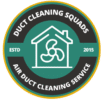The chimney is more than just a decorative feature in your home. It serves an important function. This vent can transport toxic gases from your fireplace, furnace, or stove out of your house. The state of your chimney is probably the last thing from your thoughts as you relax in front of the gleaming flames of your fireplace. You may feel at ease, but it may not last if you don’t think about the health of your chimney while you’re doing it. This is since chimney fires are more likely to occur in dirty chimneys, resulting in injuries and property damage.
Causes of a Chimney Fire
A chimney fire can be a tragic experience in a homeowner’s life, or it might happen without their knowledge. A chimney fire can inflict substantial (and even fatal) damage to a chimney or a home. Every year, many chimney fires cause structural damage or fatalities, therefore it’s critical to understand what causes them.
1. Professionally cleaned.
“Clean chimneys don’t catch fire,” according to the Federal Emergency Management Agency (FEMA). In order to ensure that your chimney is safe to use, you should have it cleaned and inspected by a trained chimney sweep on an annual basis.
2. Keep creosote from accumulating.
The smoke, water vapor, gases, unburned wood particles, hydrocarbon, tar fog, and other minerals from the fire move up into the chimney, where condensation happens, creating a sticky residue known as creosote, which adheres to the chimney walls and can start a fire. Avoid accumulation by:
In order to keep the fireplace doors, open, keep the damper open wide, and use seasoned wood, you must follow these three simple rules.
This type of fire is regarded as particularly dangerous since it burns for a longer period of time and is difficult to put out.
The fireplace should be covered. A fireplace screen keeps embers and sparks from igniting the carpet or neighboring furniture when they jump out of the fireplace during use.
3. Do not sleep or leave the house during fire burning
It’s dangerous to leave a burning fire unattended, so wait until the coals are completely extinguished before going to sleep.
4. Dispose of ashes in a safe manner.
At least three feet from your home’s perimeter, you should store the ashes of recently burned fires in a metal container that has a lid.
How to Identify a Fire in a Chimney?
A chimney fire starts for a variety of reasons, some of which are easy to notice:
The chimney is making a terrible roaring noise.
Ashes and other material coming from the chimney’s top
The chimney is spewing forth a thick, black smoke.
Chimney rattling and crackling.
Ways to avoid a chimney fire
There are several things you can do to ensure the health of your chimneys. You’ll be able to keep your home safer from chimney fires if you do this. These are a few examples of what I’m talking about:
1. Inspect your fireplace and chimneys every six months.
Get your chimney examined and cleaned every six months. If so, you’ll require a chimney cleaning. You can’t do it alone. Removing creosote and chimney cleaning is considerably easier with a professional. To prevent chimney fires, creosote buildup must be eliminated. A buildup of combustible debris in a chimney might cause a fire.
2. Fire up a small one
The chimney should not be fired with large flames to minimize creosote buildup. To reduce creosote development to a minimum, keep the fire small and low. Wood seasoned for at least six months should be used to start a fire. Otherwise, the chances of creosote buildup increase significantly.
3. Keep flammable liquids out
Make sure you’re not using any flammable things before lighting a fire. So combustible flames can easily go out of control. Make sure you aren’t burning anything else in the fireplace, like papers or trash. These materials could cause a chimney fire. Smoke from the fireplace could ignite a fire. So you must do your utmost to get rid of it.
4. Chimney liners
According to Duct Cleaning Squads professionals, chimney liners are a must for chimney fire safety. These devices are used to boost airflow and provide a better path for combustion gases. Additionally, they protect the chimney’s structure from overheating. As a result, chimneys are well-protected.
You’ve learned the warning signals of a chimney fire. What do you need to do next?
- Shut the door. You may assist minimize the amount of oxygen circulating in your home by closing the doors to your fireplace if it’s possible.
- Leave the house. If you think there might be a chimney fire, get everyone out of the house and phone 911.
As tempting as it may be, you should be aware that squirting cold water on a heated chimney could cause it to crumble.
It’s easy to ignore a tiny fire once it’s extinguished, but it’s critical to get your chimney evaluated after even the most minor of fires to ensure that there was no structural damage.
Conclusion
To avoid a chimney fire, make sure you follow all the important safety standards for using a chimney. They’ll cost you a lot of money and put you through a lot of mental strain. If that wasn’t bad enough, they’re also a danger to you and your family. If the chimney fire damages the surrounding region, you may face legal consequences.
